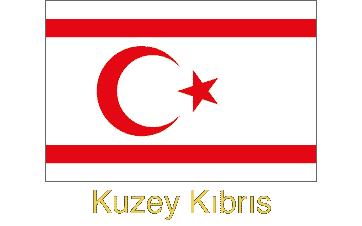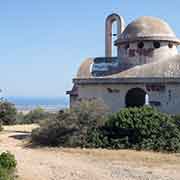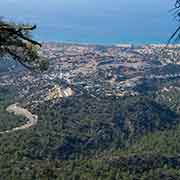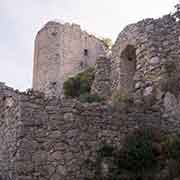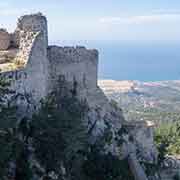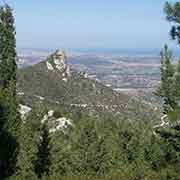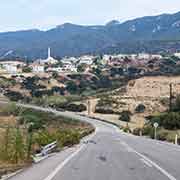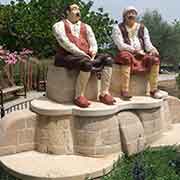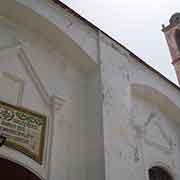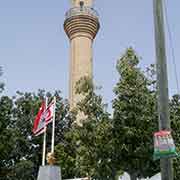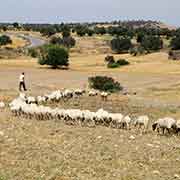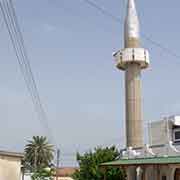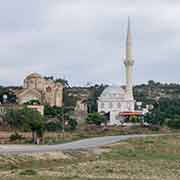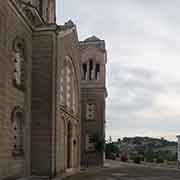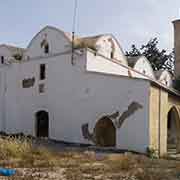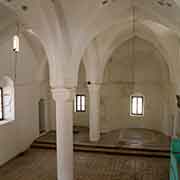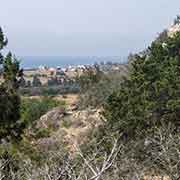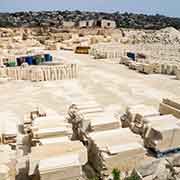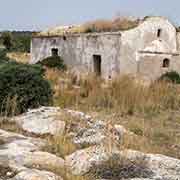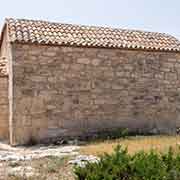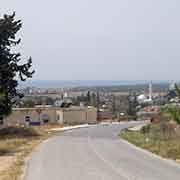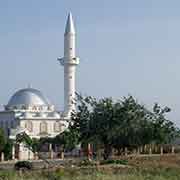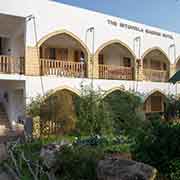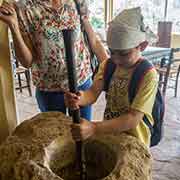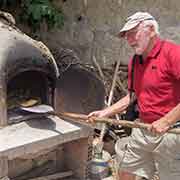Photos of the Western Karpas Peninsula, Cyprus
The Western Karpas Peninsula
The Karpas Peninsula, in Greek Karpasía (Καρπασία) and Karpaz in Turkish, stretches out towards the northeast of Cyprus. At its western side is Kantara Castle, the easternmost of the three castles situated on the Kyrenia Mountain range (Beşparmak), well-positioned to control the entrances to Karpas Peninsula and Mesaoria plain. It was probably built in the 10th century by the Byzantines as a lookout post against raiding Arabs. The first historical mention of the castle is connected with Richard the Lionheart’s capture of Cyprus in 1191.
you may then send it as a postcard if you wish.
Some villages here used to be solely inhabited by Greek Cypriots, like Tavros; it is now renamed Pamuklu by Turkish Cypriots and mainly used for the settlement of Turkish nationals brought in from Turkey in 1976 and 1977. Others had a mixture of both Greek- and Turkish Cypriots, like Büyükkonuk (Komi Kebir). It now has its Atatürk Street and a bust of Kemal Atatürk, with his pronouncement “Ne mutlu Türküm diyene” (How happy is the one who says I am a Turk), a feature of many villages. Most Greek Orthodox churches have been desecrated and plundered of their icons; they remain mainly as empty shells, and some have been converted into mosques.
The village of Kumyalı (Koma tou Gialou), near the south coast of the Karpas peninsula, has a great place to stay, the Nitovlika Garden Hotel, where the proprietor keeps alive the culture of the Turkish Cypriots, in the face of the onslaught of the immigrants from Anatolia. They have changed the ethnic makeup of the country. School classes come here to be taught the traditional ways of making bread, among others.
